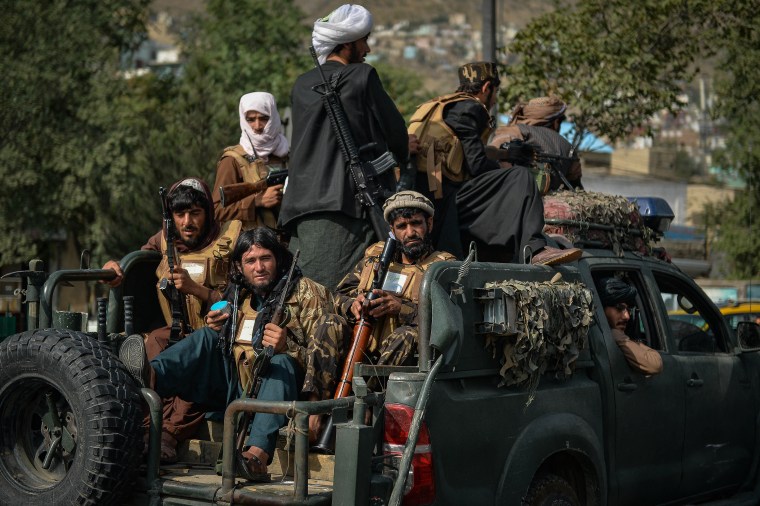When the Taliban retook control of Afghanistan in 2021, they promised to protect press freedom and women’s rights – a key facet of their efforts to paint a picture of moderation compared to their oppressive rule in the late 1990s.
“We are committed to the media within our cultural frameworks. Private media can continue to be free and independent. They can continue their activities,” Taliban spokesperson Zabihullah Mujahid said at the first news conference two days after the fall of Kabul on August 15, 2021.
Two years later, the Taliban not only has reneged on that pledge, but intensified its crackdown on what was once a vibrant media landscape in Afghanistan.
Here is a look of what happened to Afghan media and journalists since the 2021 takeover:
What is the state of media freedom in Afghanistan?
Since the fall of Kabul, the Taliban have escalated a crackdown on the media in Afghanistan. CPJ has extensively documented cases of censorship, assaults, arbitrary arrests, home searches, and restrictions on female journalists in a bid to muzzle independent reporting.
Despite their public pledge to allow journalists to work freely, Taliban operatives and officials from the General Directorate of Intelligence (GDI) – the Taliban’s intelligence agency – have assaulted, arbitrarily arrested and detained journalists, while shutting down local news outlets and banning broadcasts of a number of international media from inside the country. Foreign correspondents face visa restrictions to return to Afghanistan to report.
Journalists continue to be arrested for their job. Since August 2021, at least 64 journalists have been detained in Afghanistan in retaliation for their work, according to CPJ’s research. They include Mortaza Behboudi, a co-founder of the independent news site Guiti News, who has been held since January.
Afghan journalists have fled in huge numbers, mostly to neighboring countries like Pakistan and Iran. Many who left are now stuck in legal limbo without clear prospects of resettlement to a third country, and their visas are running out, prompting fears they could be arrested and deported back to Afghanistan.
What trends have emerged in the last two years?
The Taliban have not ceased their efforts to stifle independent reporting, with the GDI emerging as the main driving force behind the crackdown. The few glimmers of hope that CPJ noted in its 2022 special report on Afghanistan’s media crisis are dimming as independent organizations like Ariana News and TOLO News face both political and economic pressures and Taliban intelligence operatives detained at least three journalists they claimed were reporting for Afghan media in exile.
The Taliban are also broadening their target to take aim at social media platforms, enforcing new regulations targeting YouTube channels this year while officials mull a ban on Facebook.
A clampdown on social media would further tighten the space for millions of Afghans to freely access information. The rapid deterioration of the media landscape has led to some Afghan YouTubers taking on the role of citizen journalists, covering issues from politics to everyday lives on their channels.
Meanwhile, the Taliban are seeking to end their international isolation. In recent weeks, they have sent a delegation to Indonesia and held talks with officials from the United States as the group tried to shore up the country’s ailing economy and struggle with one of the world’s largest humanitarian crises. with more than half of its 41 million population relying on aid to survive.
A worsening media repression, however, is pushing Afghanistan deeper into isolation from the world, hurting its economy and people’s livelihoods, as CPJ’s Beh Lih Yi writes in an op-ed for Nikkei Asia.
What is CPJ hearing from Afghan journalists?
Even two years after the fall of Kabul, we hear from Afghan journalists on a near-daily basis – both from those who remain inside the country and those who are in exile – on the hostile environment they are facing.
Afghanistan remains one of the top countries for CPJ’s exile support and assistance to journalists. Since 2021, Afghan journalists have become among the largest share of exiled journalists getting support each year from CPJ, and contributed to a jump of 227 percent in CPJ’s overall exile support for journalists during a three-year period from 2020-2022. The support they received included immigration support letters and grants for necessities like rent and food.
We also increasingly received reports from exiled Afghan journalists who were being targeted in immigration-related cases. Afghan journalists who have sought refuge in Pakistan told us they have been arrested and extorted for overstaying their visas, and many are living in hiding and in fear.
What does CPJ recommend to end the Taliban’s media crackdown and help Afghan journalists forced into exile?
There are several actions we can take. Top of the list is to continue urging the international community to pressure the Taliban to respect the rights of the Afghan people and allow the country to return to a democratic path, including by allowing a free press.
The global community and international organizations should use political and diplomatic influence – including travel bans and targeted sanctions – to pressure the Taliban to end their media repression and allow journalists to freely report without fear of reprisal.
Foreign governments should streamline visa and broader resettlement processes, and support exiled journalists in continuing their work, while collaborating with appropriate agencies to extend humanitarian and technical assistance to journalists who remain in Afghanistan.
CPJ is also working with other rights groups to advocate for the implementation of recommendations that include those in its 2022 special report on Afghanistan’s media crisis. (Read CPJ’s complete list of 2022 recommendations here and CPJ’s August 14 call on the Taliban to end its media crackdown here.)
